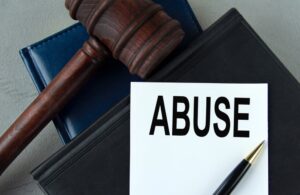What is Nursing Home Abuse?
Abuse and NeglectWhat is nursing home abuse? It’s a horrible problem that’s far too common in our country. Untold thousands of our elderly suffer indignities and abuse each year. If you suspect this is happening to a loved one, please don’t hesitate to contact authorities and then call a nursing home abuse lawyer. A skilled attorney will immediately go to work to help you keep your loved one safe and pursue maximum compensation.
Nursing Home Abuse Defined
Nursing home abuse refers to any intentional or unintentional harm, mistreatment, or neglect inflicted upon nursing home residents by caregivers, staff, visitors, or other residents. This abuse can manifest in various forms, each causing significant physical, emotional, and psychological damage to the victims.
At its core, nursing home abuse is a violation of the fundamental human rights and dignity that every individual deserves, especially older people, who often rely on these facilities for their daily care and well-being. The abuse can stem from a range of factors, including inadequate staffing, poor training, and lack of oversight within the facility. Unfortunately, many instances of abuse go unreported due to the victim’s fear of retaliation, cognitive impairments, or inability to communicate their suffering.
Nursing home abuse not only causes immediate harm but also has long-term consequences on the victim’s overall health and quality of life. Physical injuries may lead to prolonged medical complications, while emotional and psychological trauma can result in depression, anxiety, and a loss of trust in caregivers. The ripple effects extend to the victims’ families, who may experience guilt, anger, and helplessness upon discovering the abuse.
More than one million people lived in nursing home facilities across the United States in recent years. While many receive quality care, others must endure mistreatment daily. If you suspect that a loved one is a victim of nursing home abuse, it’s crucial to take immediate action to protect them and seek legal assistance to hold the perpetrators accountable.
Causes and Risk Factors of Nursing Home Abuse

Understanding the causes and risk factors of nursing home abuse is essential to preventing and addressing this issue effectively. The primary factors contributing to mistreatment include staff-related factors, resident-related factors, and institutional factors.
Staff-Related Factors
One of the primary issues is inadequate staffing. When nursing homes are understaffed, employees are often overworked, leading to insufficient time and energy to provide proper care for each resident. These issues can result in neglect and even abusive behavior due to frustration and fatigue.
Lack of training is another critical factor. Properly trained staff are essential for ensuring residents’ safety and well-being. Without adequate training, staff may not be equipped to handle the unique needs of elderly residents, particularly those with cognitive impairments or challenging behaviors.
Staff burnout is also a significant contributor to nursing home abuse. The demanding nature of caregiving can lead to physical and emotional exhaustion, causing staff members to become less patient and more prone to abusive behavior. Burnout can result in a lack of empathy and a detachment from the residents’ needs, exacerbating the risk of abuse.
Resident-Related Factors
Residents with physical or cognitive impairments are particularly vulnerable. They may be less able to defend themselves or communicate their needs, making them easier targets for abuse.
Social isolation is another critical factor. Residents who lack regular contact with family and friends are at higher risk of nursing home abuse. Isolation can make it difficult for abuse to be detected and reported, allowing it to continue unchecked.
Institutional Factors
Poor management is another significant risk factor regarding nursing home abuse. Ineffective leadership can lead to a lack of oversight and accountability, allowing abusive behavior to go unnoticed and unaddressed.
Inadequate policies and procedures are also problematic. Nursing homes must have clear, enforceable guidelines to prevent and address abuse. Without these, staff may not have the necessary framework to provide safe and respectful care, increasing the risk of abuse.
Types of Nursing Home Abuse
Nursing home abuse encompasses various forms of mistreatment that can severely impact a victim’s health and well-being. Recognizing the different types of abuse is crucial in identifying and preventing these harmful behaviors. The primary types of nursing home abuse include physical abuse, medication errors, financial abuse, and abandonment.
Physical Abuse

Researchers estimate physical abuse accounts for nearly 30 percent of all mistreatment in nursing homes. It involves the intentional infliction of physical harm to residents. Examples include hitting, slapping, pushing, or using excessive force when handling or restraining residents.
Physical abuse often results in visible injuries such as bruises, cuts, fractures, or even more severe conditions. The physical and emotional trauma from such abuse can lead to long-term health complications and significantly diminish the victim’s quality of life.
Medication Errors
Medication errors can have dire consequences. Staff members can give residents incorrect medications or dosages or administer medications at the wrong times. Such mistakes can result from negligence, lack of training, or intentional misuse of medications.
The effects of medication errors can range from mild discomfort to severe health crises, including adverse drug reactions, worsening of medical conditions, and even death.
Financial Abuse
Financial abuse involves the illegal or unethical exploitation of a resident’s financial resources. Examples include theft of money or valuables, unauthorized use of bank accounts or credit cards, and manipulation to change wills or estate plans.
Offenders can be staff members, other residents, or even family members. Financial abuse can deplete a resident’s savings, leaving them without funds for necessary care and support.
Abandonment
Abandonment is a severe form of nursing home abuse where residents don’t receive the necessary care or supervision. This can occur when staff members leave their posts or fail to provide essential services, such as assistance with daily activities, medical care, or basic needs. Abandonment can lead to severe physical and emotional harm, as residents may be unable to care for themselves.
Recognizing the Signs of Nursing Home Abuse
Identifying the signs of nursing home abuse is crucial to protect elderly residents from harm. Abuse can manifest in various ways, including physical, behavioral, environmental, and financial signs. Being vigilant and recognizing these indicators can help intervene and stop abuse promptly.
Physical Signs
Physical signs of nursing home abuse are often the most visible. Unexplained injuries are significant red flags. These injuries may not be consistent with the victim’s medical history or usual activity level. Frequent hospital visits or emergency room trips for injuries the victim can’t adequately explain can also indicate abuse. Signs of restraint, such as marks on wrists or ankles, should also raise immediate concern.
Behavioral Signs
Abrupt or unusual changes in mood or behavior, such as increased anxiety, depression, or agitation, may indicate that something is wrong. Previously active and engaged residents might withdraw from social activities, avoid interaction with specific staff members, or be afraid. Another significant sign is a decline in communication, where residents become less talkative or stop participating in conversations altogether.
Environmental Signs
The environment in which residents live can also provide clues to nursing home abuse. Poor hygiene and unsanitary living conditions indicate the facility isn’t meeting the resident’s basic needs. Indications can include soiled bedding, inadequate clothing, or a general lack of cleanliness in the resident’s room or common areas. Overcrowded or understaffed facilities may struggle to maintain proper care standards, leading to neglect.
Financial Signs
Signs of financial discrepancies can include sudden changes in a resident’s financial status, such as unexplained withdrawals from bank accounts, missing checks, or alterations in wills and other legal documents. Missing personal items, like jewelry or other valuables, can also indicate financial exploitation. Regularly monitoring financial statements and transactions is essential to detect any irregularities.
By being aware of these indications of nursing home abuse, families, caregivers, and authorities can take timely action to protect residents from harm and hold abusers accountable.
Steps to Take if You Suspect Nursing Home Abuse

If you suspect nursing home abuse, act promptly to ensure the victim’s safety. Here are some steps to consider taking:
Document the Abuse
Start by documenting your observations and suspicions. Write down specific incidents, including dates, times, locations, and any conversations you had with the victim or staff. Detailed documentation can provide a clear timeline and help build a case against the abusers.
Maintain detailed records of any signs of abuse. For example, keep notes on physical injuries, behavioral changes, and environmental conditions. Record any changes in the resident’s mood or behavior and any statements they make about their treatment.
Gather Evidence
Collect as much evidence as possible to support your suspicions of nursing home abuse. Take photos of visible injuries or poor living conditions. Obtain copies of medical records that show unexplained injuries or changes in the resident’s health status. Speak with other residents or staff members who may have witnessed the abuse and ask for written statements.
Report the Abuse
Report your concerns to the nursing home administration immediately. Provide them with the documentation and evidence you have gathered. Ensure that they know the severity of the situation and demand immediate action to protect the resident.
Contact State Authorities
If the nursing home administration doesn’t address the issue adequately, or if you believe the nursing home abuse is severe, report it to state authorities. Contact Adult Protective Services or your state’s licensing agency for nursing homes. These organizations are responsible for investigating and addressing elder abuse complaints. You can also contact the National Adult Protective Services Association, which can give you more information on how to report suspected abuse.
Contact Law Enforcement
In cases of severe nursing home abuse, involving law enforcement may be necessary. If you believe the resident is in immediate danger, or if the abuse constitutes a criminal offense, contact the police. Law enforcement can thoroughly investigate and take appropriate legal action against the abusers.
Seek Medical and Psychological Help
Ensure the victim receives immediate medical attention to address any physical injuries. Schedule appointments with healthcare professionals who can thoroughly examine and document any signs of abuse. In addition, seek psychological support for the resident, as abuse can have severe emotional and mental health impacts. Therapy or counseling can help the victim cope with the trauma and begin the healing process.
Contact a Nursing Home Abuse Lawyer
Once you know the victim is safe, contact a nursing home abuse attorney immediately. Explain the situation, providing as many details and evidence as possible. The lawyer will investigate to determine the extent of the abuse and prepare a case to help you and your family obtain fair compensation from those responsible.
Can You File a Lawsuit for Nursing Home Abuse?

Filing a lawsuit for nursing home abuse is a critical step in seeking justice for victims and holding abusers accountable. However, the process of taking legal action is challenging. Here’s what you need to know about pursuing a lawsuit for nursing home abuse.
Complications of Taking Legal Action
One major complication is the burden of proof. Proving nursing home abuse requires substantial evidence, which can be challenging to gather, especially when dealing with elderly residents who may have cognitive impairments or difficulty communicating. Nursing homes often have legal teams ready to defend against claims, making it an uphill battle for individuals to navigate the legal process alone.
Another complication is the potential for retaliation. Residents and their families may fear backlash from the nursing home staff or administration if they report abuse. This fear can deter many from coming forward. The emotional toll on the victim and their family can also be significant, as they relive traumatic experiences during the legal process.
The Importance of an Attorney
Having an experienced attorney can significantly increase the chances of a successful outcome. A skilled lawyer with experience in nursing home abuse can handle the complexities, gather necessary evidence, and build a strong case. They understand the nuances of elder law and the tactics nursing homes use to defend against abuse claims.
An attorney can also provide invaluable support by handling all legal aspects, allowing the victim and their family to focus on recovery. They can negotiate with the nursing home’s legal team and represent the victim in court if necessary.
Types of Damages an Attorney Will Pursue
A nursing home abuse attorney will pursue various types of damages to compensate the victim for the harm suffered. These damages can include:
- Compensatory damages: These cover medical expenses, including costs for treatment, rehabilitation, and ongoing care resulting from the abuse. They also include compensation for pain and suffering, emotional distress, and loss of quality of life.
- Special damages: These can cover specific financial losses such as lost income if the victim or their family members had to take time off work to deal with the abuse.
- Punitive damages: Sometimes, nursing home abuse is especially egregious. In this instance, a lawyer may seek punitive damages to punish the nursing home and deter similar behavior. However, it’s essential you understand courts rarely award punitive damages.
Speak With a Nursing Home Abuse Lawyer as Soon as Possible
Even though filing a lawsuit for nursing home abuse is complex, it’s essential for achieving justice and preventing future abuse. An experienced attorney will work to ensure the victim receives the compensation and support they deserve. Contact a personal injury lawyer immediately for a free consultation.
Nathan Hughey, an attorney and fourth-generation South Carolinian, founded Hughey Law Firm in 2007. Before that, he spent five years defending nursing homes and insurance companies. Leveraging his experience, he now advocates for those injured or wronged by such entities, securing over $290 million in verdicts and settlements.
